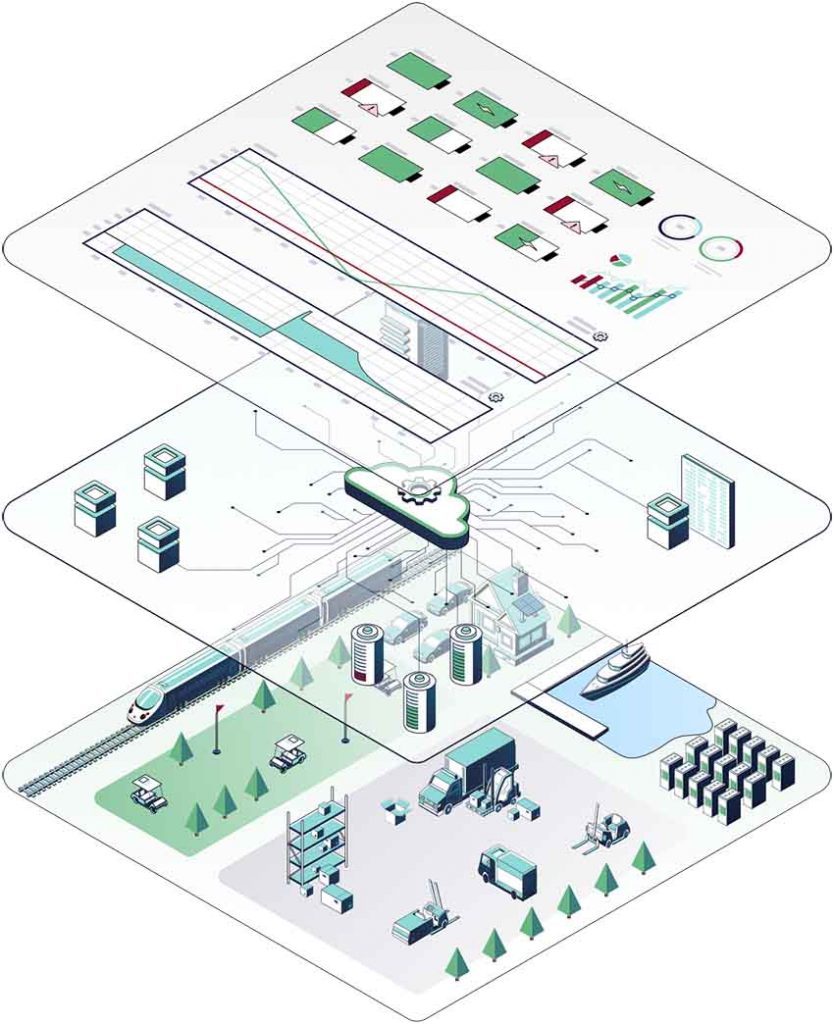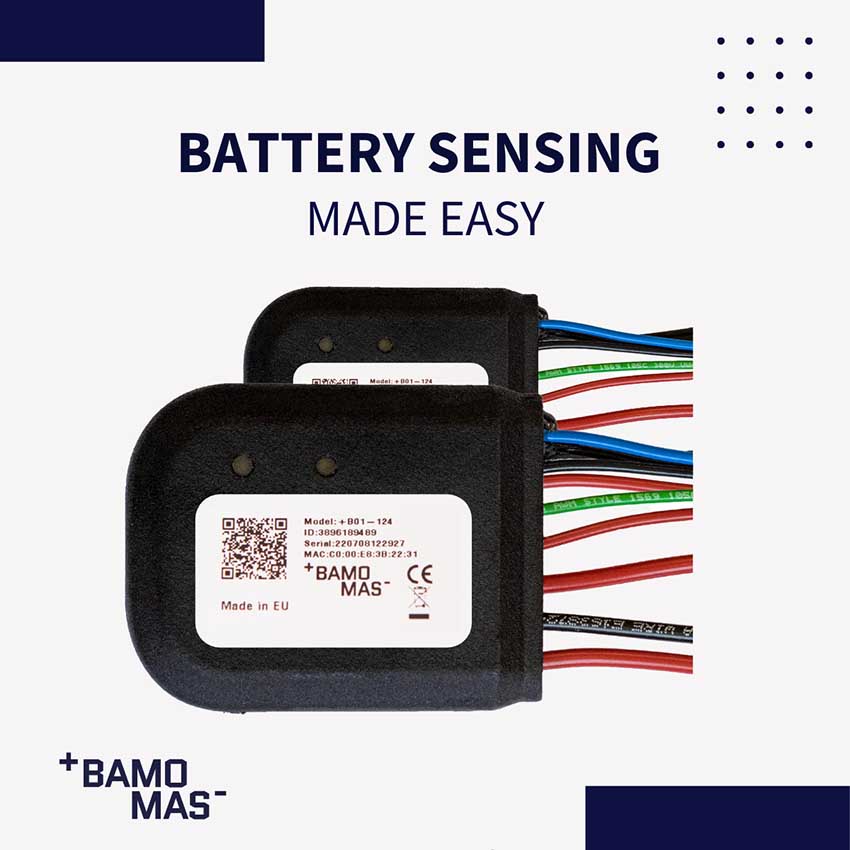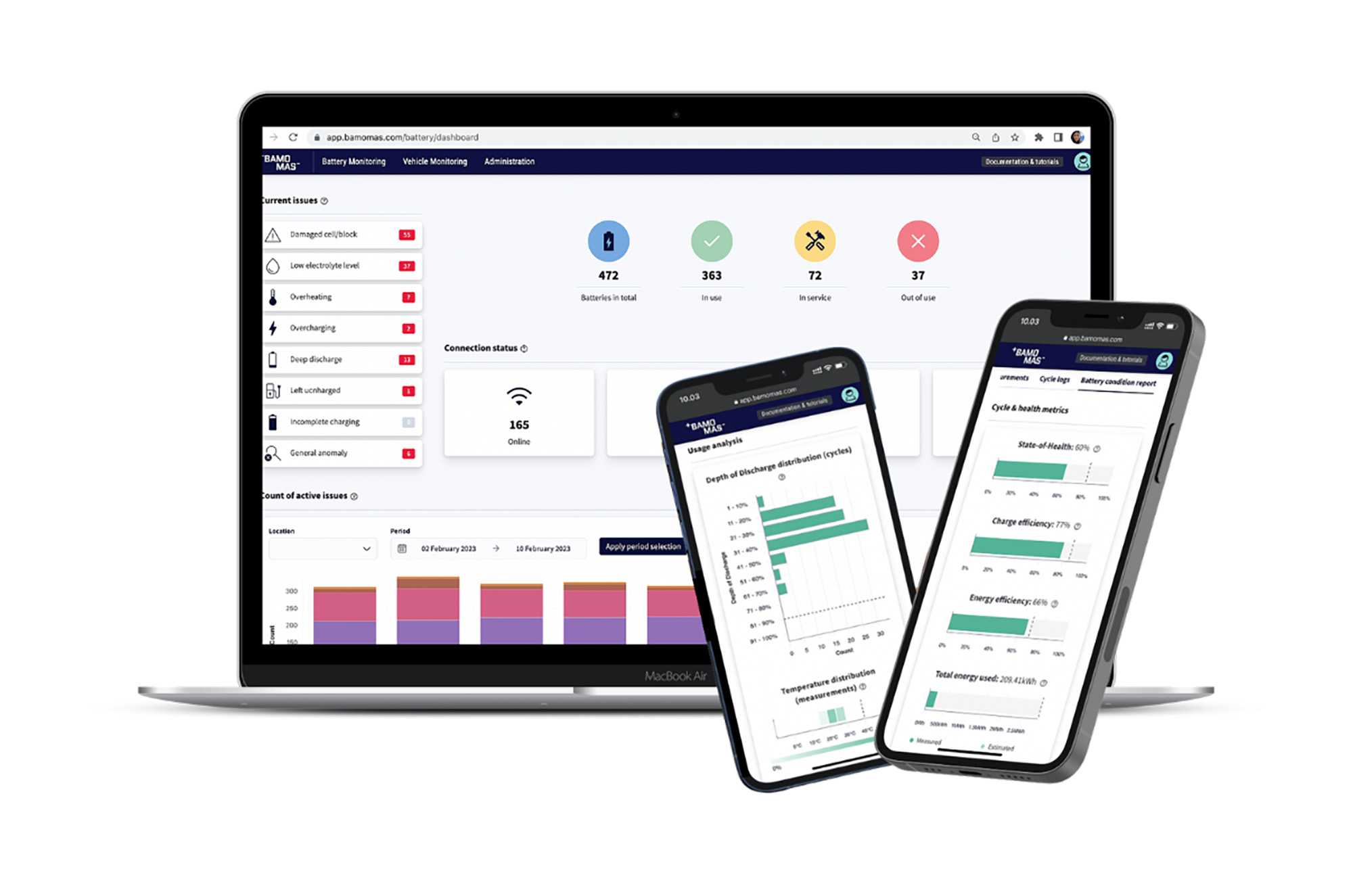Bamomas is a Finnish tech spinoff company from Tampere University. They specialize in remote battery intelligence and predictive battery fleet analytics. The company is developing IoT and analytics solutions for industrial batteries with the aim to make battery usage more economical and environmentally friendly.
Bamomas helps battery fleet operators optimize battery lifespan and implement predictive battery maintenance on a fleet level and down to a battery cell level. Bamomas’ core competences lie in in-depth AI/ML-based predictive battery analytics, battery connectivity, and remote battery monitoring.
Interview with Pavel Marek, CEO & Co-Founder of Bamomas.
Easy Engineering: What are the main areas of activity of the company?
Pavel Marek: Our main application areas include material handling, UPS, electric vehicles, rolling stock, and new energy innovations. Bamomas provides battery analytics for both Li-ion and lead acid batteries, which makes us the leading choice for customers with multi chemistry battery fleets.

E.E: What’s the news about new products?
P.M: Our latest product offering is a cloud-based battery analytics application that can be used stand alone or be integrated to other digital solutions via API. Our application allows visibility into battery state of health and performance, helps maximize battery lifespan, increases battery second life value, provides data for warranty claims and predictive maintenance activities, and prevents potential safety issues such as fire hazards due to thermal runaway.
E.E: What are the ranges of products?
P.M: In addition to our battery analytics software, we have also developed our own hardware i.e. Bamomas plug and play lead-acid battery sensor. The state-of-the-art sensor easily attaches to any lead-acid or nickel-cadmium battery and remotely monitors voltage, voltage balance, current, temperature, and electrolyte level. Bamomas sensors can be used with both Wirepas Massive mesh topology network as well as Bluetooth, depending on the application and requirements of the customer.
E.E: At what stage is the market where you are currently active?
P.M: The demand for battery analytics is already strong in the intra-logistics sector. The demand in the automotive industry is expected to rise significantly within 1-3 years as the number of electric vehicles would keep increasing, requiring companies to both generate more granular data over a battery’s life as well as to leverage analytics to make intelligent use of that data for second life applications.

E.E: What can you tell us about market trends?
P.M: The market for battery analytics solutions is massively growing with Li-ion batteries being introduced into industrial applications. There is a strong regulatory push for all automotive batteries to be collected at the end of their first life, however, determining accurate battery state of health (SoH) throughout the first life of the battery in order to have a clear picture for battery second life usage is a complicated process requiring specialized expertise and technology. This has created space in the market for innovative solutions for battery analytics and remote battery intelligence.
E.E: What are the most innovative products marketed?
P.M: Both our predictive battery analytics software as well hardware for remote battery monitoring are one of a kind solutions. There are few companies operating in this space right now and Bamomas is the only one with a specific focus on battery fleet operators, with a solution that covers both traditional lead acid batteries as well as the modern lithium-ion batteries.
E.E: What estimations do you have for 2023?
P.M: In 2023, we will likely witness further development of already ongoing trends. For Bamomas this means growing our existing partnerships, developing new collaborations, and refining our offerings even further.


